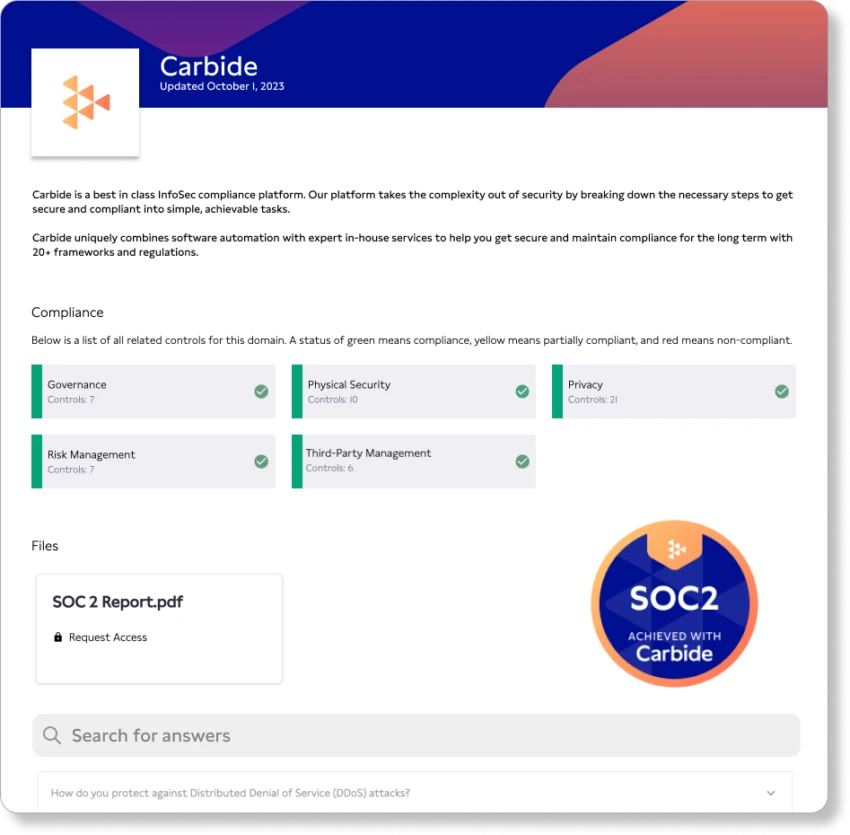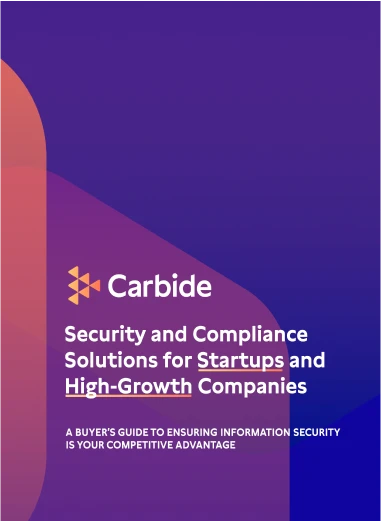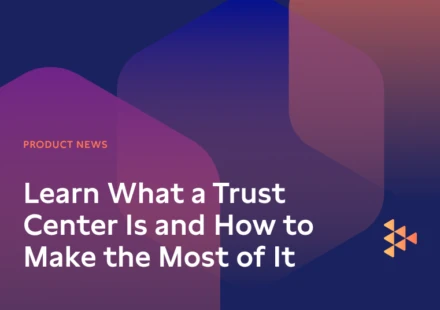Trust is a big word in the InfoSec industry these days. With breaches happening daily, risk surface areas increasing, and threat actors using new AI-driven tactics, trust is becoming even more paramount. What was once a post-agreement conversation is now a necessity to close any new deal. So, how do you build trust?
Well, you can wait until you receive another security questionnaire that will make you and your security team bang your heads against your desks and slow down your deal, or you can build a Trust Center.
Do you hear that? That’s your team cheering in the background because they hate security questionnaires. Let’s get into it.
What is a Trust Center?
A Trust Center allows companies to share the best parts of their InfoSec program, such as policies, certifications, and other security documents, to build trust with customers and prospects.
In other words, it’s a self-serve security handshake, allowing viewers to gather the information they need to complete their security checks and feel confident about partnering with your organization.
What are the Benefits of a Trust Center?
Whether you are an SMB or enterprise-sized organization, Trust Centers can help you meet your revenue targets and free up bandwidth on your team.
Accelerate Sales Cycles
By sharing your Trust Center with prospects, you can demonstrate your security posture early during the sales process. Doing so allows you to build trust and demonstrate InfoSec maturity to close deals sooner and increase revenue.
Publishing a Trust Center also allows your prospects and customers to find the information they need on-demand to maintain momentum in your sales cycles.
Simply put, your Trust Center is always on, so you don’t have to be.
Avoid Tedious Security Questionnaires
The security review is one of the most challenging parts of obtaining a new customer. With 50, 100, or even 200+ questions to answer in a boring spreadsheet, it’s mind-numbing work. It’s also essential to ensure that the information you share is accurate, as any misinformation could create legal risks should a security incident occur.
Fortunately, Trust Centers can help with this. Often the information on a Trust Center is enough to satisfy the security review process and remove roadblocks. And with the information being gathered from your existing InfoSec program, you know it will be accurate.
Expedite Information Requests
If you have a robust InfoSec program, i.e. if you’re NIST 800-53 certified for instance, you might be able to skip most security questionnaires because of that certification. However, your security team still has to gather security documents into a custom package for each prospective customer.
Trust Centers eliminate these issues by streamlining and managing all information requests through the Trust Center. Each prospect can request access to any private information and documents you display on your Trust Center, allowing you to review the request and decide whether to approve or deny the request.
How do you build a Trust Center?
For a Trust Center to work, you need to have at least started to build your InfoSec program so you have security and privacy content to add to it. And if you’re a Carbide customer, you can use your existing information in Carbide to create your unique Trust Center in just a few minutes. For our customers, the steps are simple:
- Add a description for your company, logo, and color banner
- Choose which compliance information and documents you want to showcase
- Review the preview and publish

Summary
Trust Centers are essential for any organization looking to modernize their approach to sharing InfoSec information. Trust Centers offer incredible value, from quicker sales cycles to deflecting security questionnaires and speeding up information requests – while requiring very little time to set up and maintain.
To join the Carbide community and build your organization’s Trust Center, request a demo with our team.

